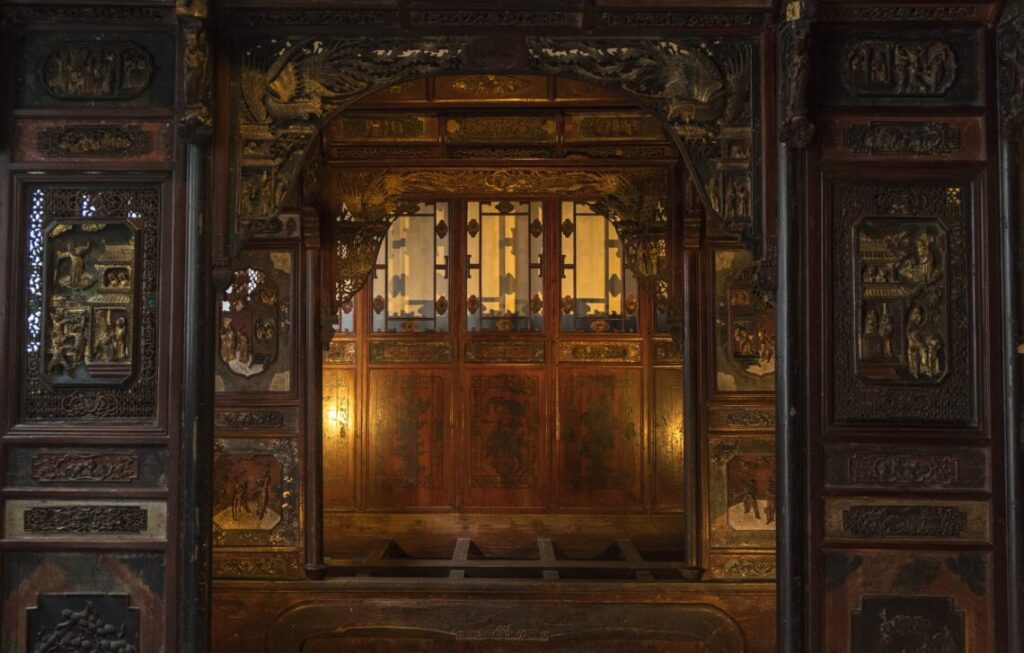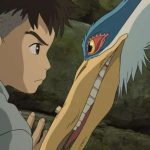The Warlords is a grand, tragic tale of ambition, self-establishment, and brotherhood set against the chaos of the late Qing dynasty. In the crucible of war, I see how human nature—whether intact or warped—reveals itself starkly.
As the sole general to survive a battlefield massacre, Pang Qingyun seems poised for despair. Yet a chance encounter with a woman named Liansheng reignites his will to live. Escaping death’s jaws, he finds a lifeline in bonding as sworn brothers with Zhao Erhu and Jiang Wuyang.
Together, they vow: “Share blessings, bear burdens. Born apart, we’ll die as one.”
For Qingyun, it’s a pragmatic move to enlist Erhu and Wuyang. For them, it’s a sacred oath.
The trio throws themselves into battle, enduring bitterness, humiliation, wounds, and mortal peril, never retreating as they chase glory. That glory, born of deeds, fuels their drive to build a life for those they love. But as years pass, their shared vision frays.
In the end, the human heart is a fickle thing.
The Pursuit of Glory
Driven by hunger, poverty, and abandonment, they risk their lives for food and riches. Desperation breeds both yearning and ruin.
To his brothers and soldiers, Pang Qingyun is a shrewd, brave, and disciplined leader. But as his successes mount, those traits twist. Shrewdness turns to scheming; bravery to ruthlessness; discipline to self-exemption.
This shift makes him a heartless general, chasing selfish goals cloaked as noble causes, personal desires dressed up as calculated trade-offs for the greater good.
Qingyun sacrifices everything for fame. The breaking point comes when he betrays Erhu’s trust and has an illicit affair with Liansheng, Erhu’s wife.
Fate’s rule—fight poison with poison—undoes him. His cunning, though clever, is child’s play in the venomous game of court politics.
In the end, the elites who dangled glory before him cast him into ruin—disgraced as a traitor, dying miserably under their bullets and the vengeful blade of his last brother.
For Erhu and Wuyang, their regret lies in swearing an oath with a man of boundless ambition. Simple, honorable men, they sought only to feed and clothe their loved ones, living by loyalty above all.
They didn’t grasp the seductive pull of glory, following their big brother to a death unworthy of their bond.
Ambition sparks corruption but also lifts people up. When it’s pursued at all costs, though, it’s a slow descent into decay.
Qingyun’s fall begins the moment he knows Liansheng is Erhu’s wife yet persists, orders the slaughter of unarmed foes after a siege, and sacrifices soldiers for victory.
A gifted but merciless general, his end seems poised for reward—until the curtain falls, revealing a bitter reckoning.
Qingyun once shed tears, but for a man choosing to sell out his brothers, those tears are just a farce in the era’s crooked “crocodile tears” drama.
Brotherhood’s Bond
Pang Qingyun, Zhao Erhu, and Jiang Wuyang swear: “Share blessings, bear burdens. Born apart, we’ll die as one.”
An oath is weighty—a gentleman’s word is his bond. Swear it with a true man, and even a scoundrel must honor it.
Erhu proves noble, rejecting senseless slaughter for dominance, aiming to spare lives while recruiting foes. Though tempted to betray Qingyun, he holds fast to their vow. Qingyun exploits Erhu’s loyalty to assassinate him.
Unlike Qingyun, who speaks and breaks his word for gain, Erhu keeps his. Wuyang etches the oath into his soul, ready to kill the treacherous—Liansheng and Qingyun—then himself.
Brotherhood’s durability hinges on circumstance, shared purpose, and those who swear it.
A gentleman’s word is an oath.
An oath demands life itself to uphold.
When bonds must break, honor remains resolute.
In Place of a Conclusion
The Warlords lays bare war’s devastation. The dead lose their bodies; the living, their souls.
In such extremes, survival trumps all, individualism pushed to its edge. Blind obsession leads them all to a dead end.
So, is it the way of a fleeting life to set goals and do anything to reach them?
I’m also struck by Andy Lau’s acting. From Infernal Affairs to Shaolin and now The Warlords, his roles are unique, flawed, and tied to death. Perhaps it’s his way of speaking about life—showing us death to make us see living.














